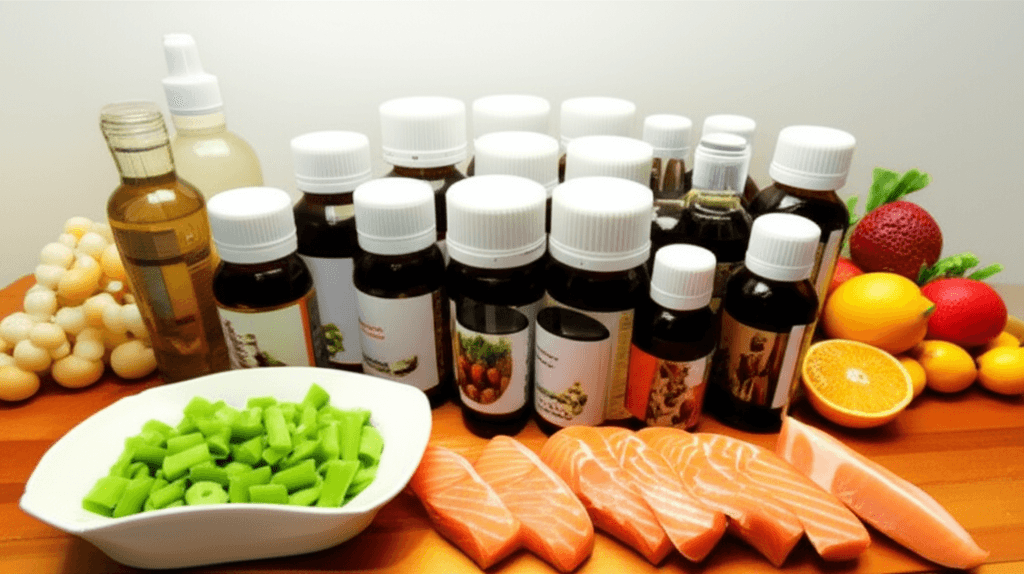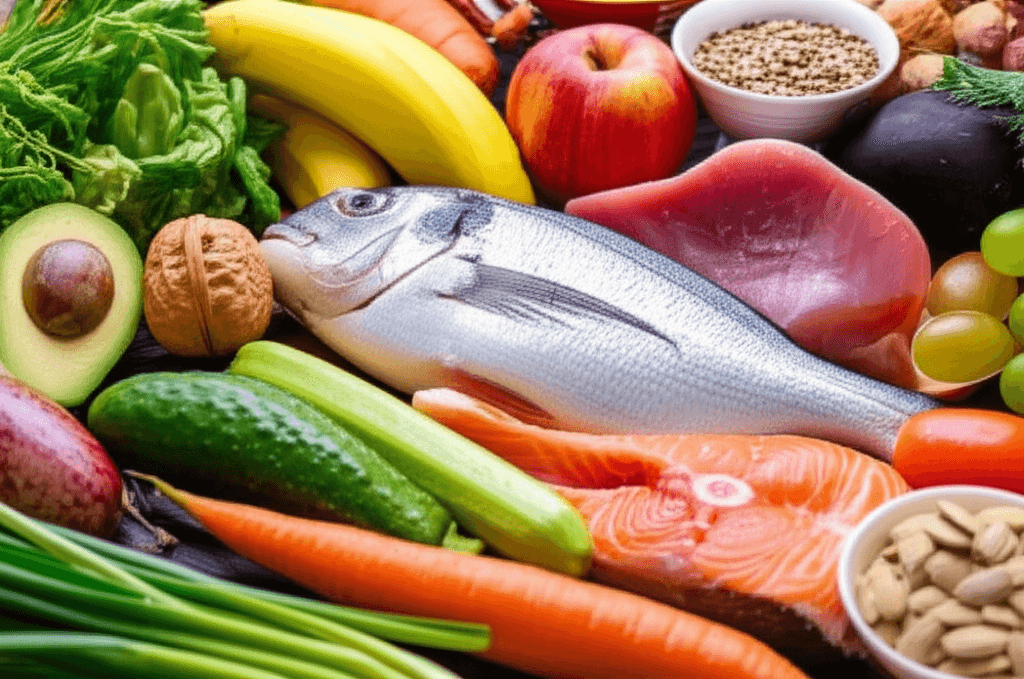Infertility is often mistakenly viewed as primarily a female issue. However, robust scientific evidence increasingly underscores the equally critical role of male nutrition in fertility and successful conception. What a man eats directly influences the quality, motility, and overall health of his sperm, making dietary choices a cornerstone of preconception planning.
Sperm are intricate living cells that demand a precise supply of vitamins, minerals, and healthy fats to maintain their strength, activity, and capacity to fertilize an egg. A decline in sperm quality has been observed over recent decades, with lifestyle factors, including diet, playing a significant role in this trend. Therefore, understanding how diet impacts male reproductive health empowers men to make actionable changes that can substantially increase the likelihood of a healthy pregnancy.

How Male Nutrition Improves Sperm Health and Fertility
A balanced diet provides the essential building blocks for healthy sperm production. Men who consistently consume a diet rich in whole grains, vegetables, fruits, nuts, and fish equip their bodies with vital nutrients that protect sperm from damage and enhance their function.
Key Aspects of Sperm Health Influenced by Diet:
- Sperm Count and Concentration: The total number of sperm present.
- Sperm Motility: The ability of sperm to move efficiently towards an egg.
- Sperm Morphology: The size, shape, and overall appearance of sperm cells.
- Sperm DNA Integrity: The genetic quality of sperm, crucial for healthy embryo development.
Healthy dietary patterns are clearly correlated with better sperm quality and a reduced risk of abnormalities in these parameters.

Essential Nutrients for Male Fertility
Several micronutrients are particularly vital for supporting male reproductive health. Focusing on a diet rich in these components can significantly improve fertility outcomes.
Zinc
Zinc is a fundamental element for male fertility, found in high concentrations in seminal plasma and the prostate gland. Adequate zinc levels are essential for normal sperm production, DNA stability, testosterone metabolism, and protection against oxidative stress. Low zinc levels have been associated with reduced testosterone and poor sperm quality.
- Food Sources: Oysters (an exceptionally rich source), beef, other meats, shellfish, eggs, legumes, pumpkin seeds, and whole-grain cereals.
Selenium
This mineral acts as an antioxidant and is crucial for normal sperm production and development, as well as thyroid function. Selenium supplementation has been shown to improve sperm concentration and motility in infertile men.
- Food Sources: Brazil nuts, fish, meat, poultry, and eggs.
Omega-3 Fatty Acids
These essential fatty acids, particularly EPA and DHA, are integral for the structural integrity of sperm cell membranes and play a role in modulating inflammation within the reproductive system. Higher intake of omega-3s is associated with improved sperm motility, morphology, and overall quality. Walnuts, in particular, have been shown to improve sperm vitality, motility, and morphology.
- Food Sources: Oily fish (salmon, mackerel, sardines), flaxseeds, chia seeds, walnuts, and seaweed.
Folate (Vitamin B9)
Folate is a key micronutrient for DNA synthesis and repair, making it critical for sperm health and proper sperm replication. Adequate folate levels can help increase sperm count and reduce the likelihood of chromosomal abnormalities.
- Food Sources: Dark leafy green vegetables (spinach, kale, broccoli), legumes, fruits, and whole grains.
Antioxidant Vitamins (C & E)
Vitamins C and E are powerful antioxidants that protect sperm from oxidative stress and DNA damage. Oxidative stress can harm sperm cells, leading to decreased quality. Vitamin C also helps regenerate Vitamin E, enabling them to work together for improved sperm function.
- Food Sources:
- Vitamin C: Citrus fruits, bell peppers, kiwi, broccoli, and strawberries.
- Vitamin E: Nuts (almonds, hazelnuts), seeds (sunflower seeds), spinach, kale, avocado, and fortified cereals.
Coenzyme Q10 (CoQ10)
CoQ10 is an antioxidant naturally produced by the body, crucial for converting food to energy. Supplementation has been shown to improve sperm motility and concentration.

Dietary Patterns for Enhanced Male Fertility
Beyond individual nutrients, the overall dietary pattern significantly influences male reproductive health.
The Mediterranean Diet
This pro-healthy dietary model, characterized by an emphasis on vegetables, fruits, whole grains, fish, nuts, legumes, and healthy oils, is strongly associated with improved sperm quality and higher fertility rates. This diet is naturally rich in antioxidants and healthy fats, which combat oxidative stress and inflammation that can negatively impact sperm.
Foods to Limit or Avoid
Conversely, certain dietary habits can have a detrimental effect on sperm health.
- Processed Meats: These often contain high levels of saturated fat, trans-fatty acids, and preservatives that can negatively affect sperm quality and endocrine function.
- High-Fat and Saturated Fat Diets: Excessive intake of saturated and trans fats (found in processed foods and some animal products) has been linked to decreased sperm concentration, lower sperm count, and negative effects on systemic inflammation and oxidative stress.
- Refined Sugars and Sweetened Beverages: Excessive consumption can negatively affect sperm production and contribute to obesity, which is a known risk factor for male infertility.
- High-Calorie and Energy-Dense Foods: These often contribute to obesity and metabolic disorders, which can disrupt the hypothalamic-pituitary-gonadal axis, leading to hormonal imbalances (e.g., lower testosterone, higher estrogen) that impair sperm production and quality.
- Excessive Alcohol: Heavy alcohol consumption can adversely affect sperm quality, including count and morphology, and may interfere with reproductive hormone production.

Lifestyle Factors Beyond Diet
While nutrition is paramount, other lifestyle choices interact with diet to influence male fertility.
- Maintaining a Healthy Weight: Obesity can lead to lower ejaculate volume, increased sperm DNA damage, and hormonal imbalances (reduced testosterone, elevated estrogen) that negatively impact fertility. Being underweight can also reduce fertility.
- Regular Physical Activity: Exercise can lower oxidative stress and DNA fragmentation in sperm. However, excessive, intensive exercise might have a negative impact due to overheating. Moderation is key.
- Avoiding Smoking and Recreational Drugs: Smoking severely harms sperm function and quality, leading to lower sperm concentration and potentially DNA damage. Recreational drugs also negatively affect sperm quality and count.
- Stress Management: Prolonged psychological stress can reduce testosterone levels, impair sperm production, and decrease libido.
- Adequate Sleep: Both insufficient and excessive sleep can be linked to male infertility.
- Limiting Exposure to Harmful Environmental Factors: This includes certain chemicals (pesticides, heavy metals), air pollution, and excessive heat exposure (e.g., from laptops on the lap, hot tubs, tight clothing).
Conclusion
The journey to conception is a shared endeavor, and men’s nutrition is undeniably a critical component. A conscious and consistent adoption of a nutrient-dense diet, rich in specific vitamins, minerals, and healthy fats, alongside positive lifestyle choices, can significantly enhance sperm health and overall male fertility. By understanding and implementing these dietary and lifestyle modifications, men can play an active and powerful role in achieving healthy conception and building a family.







